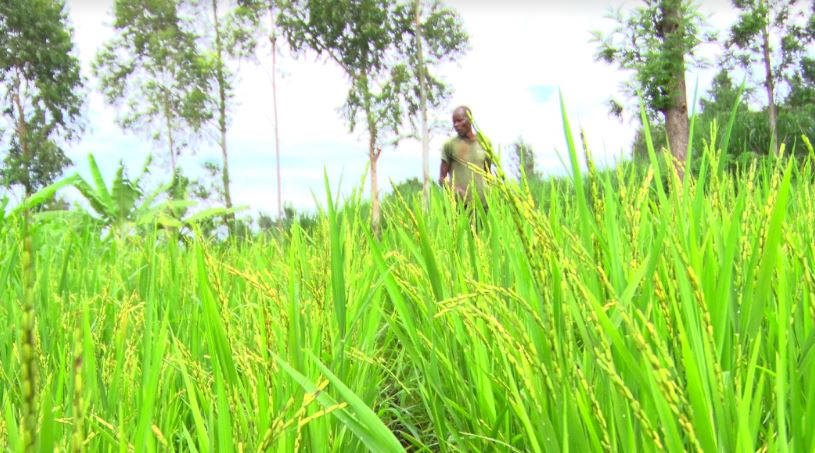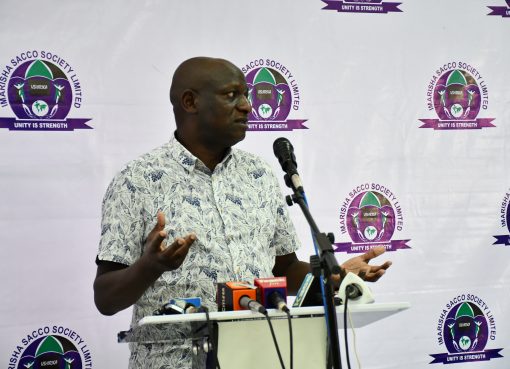Farmers in Migori have been urged to embrace cultivation of the Nerica rice variety to boost crop diversification and increase their profits.
James Orwa, a resident of Kakrao Ward in Suna East Sub County and a successful farmer, told KNA that the county has very favourable climatic conditions to support Nerica rice on any arable land.
Unlike other rice varieties that require irrigation to survive, Nerica rice, also known as African rice, is non-irrigated and only needs reliable rainfall to flourish on any arable land.
The rice can grow under low input conditions, making it a stress-tolerant rice variety for rainfed ecosystems.
Nerica also has a strong adaptability to harsh environments, a strong ability to compete with weeds, resist local diseases and pests, and withstand drought, floods, infertile soils, and iron toxicity.
Orwa said that he was given the Nerica-certified rice seeds by Kenya Agricultural and Livestock Research Organisation (KARLO) in 2020 and since then he has been planting the crop on his three-acre land for commercial as well as seed bulk to give to any local resident that may wish to plant the rice variety.
“Through Ripple Effect NGO, I was trained on how to plant, manage, and harvest the Nerica rice,” attributing the skills he has acquired to the local NGO. “I will use the skills to help anyone that would like to venture into the rice enterprise,” noted Orwa.
Nerica rice was introduced in Migori County in 2009 as an alternative food crop to maize, sugarcane, and tobacco to enhance the community’s food security.
The Migori County Integrated Development Plan (MCIDP 2018), however, reported a low uptake of Nerica rice despite the county’s efforts to support the rice farmers.
Orwa has blamed social-cultural factors as the biggest contributor to why the local natives are reluctant to adopt the new rice variety crop.
“The majority of the farmers in the county have the mentality that rice should be irrigated, while others just fear taking risks to improve their crop production,” affirmed Orwa.
In recent years, Kalro has been working to deliver genetic gains to the farmers to upscale the adoption of climate-smart high-yield rice varieties.
Early this year, rice growers from the Lower Kuja Irrigation Scheme in Nyatike were encouraged to adopt the new varieties, namely Mkombozi (08FAN10) and CSR36, to boost the production of grain in the scheme.
Apart from rice, Orwa has also done crop diversification on his farm, where maize, beans, cassava, sweet potatoes, vegetables, watermelon, pineapples, bananas, and sugarcane are flourishing.
Orwa has called upon the county farmers to embrace crop diversification to reap the huge potential that Migori County climatic conditions offer to make the county food secure.
By Geoffrey Makokha





